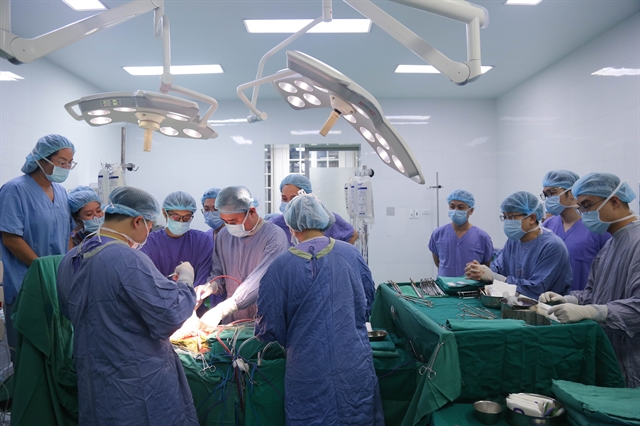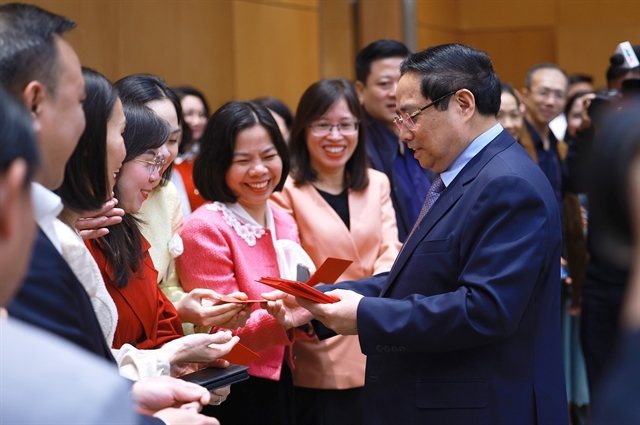 Society
Society


|
| President Nguyễn Xuân Phúc, head of the Steering Committee on Judicial Reform, gives a speech at the 13th meeting on draft online trial regulations and judicial mechanism on Thursday. Photo baochinhphu.vn |
HÀ NỘI – The Steering Committee on Judicial Reform discussed and agreed two major issues on justice and draft online trial regulations at the 13th meeting yesterday.
President Nguyễn Xuân Phúc, who is the head of the committee, presided over the meeting.
The committee focused on assessing the renovation of people's participation in trial at the court and promulgating the regulation of online trials at the court, which was submitted by the Party Personnel Committee of the Supreme People's Court.
In terms of the judicial mechanism renovation project, the project assessed the organisation and operation of jurors. By the end of this March, there were 17,299 jurors nationwide, including 16,913 people's jurors and 386 military jurors.
Of that, there were 14,390 jurors who are cadres, civil servants and public employees, accounting for 83.2 per cent; 2,901 were retired officers, making up 16.77 per cent; and eight jurors were citizens who did not work for State agencies or organisations, accounting for 0.03 per cent.
In the 2016-2021 term, people's jurors participated in the first-instance trial of 998,257 cases while the number of military jurors was 672 cases.
The system of legal documents on jurors remains incomplete. Some regulations were not suitable with the current reality.
The committee proposed eight solutions: perfecting the mechanism of jurors participating in trial at court; supplementing the institution of a jury in the first-instance trial of criminal cases; perfecting the legal system on jurors; enhancing expertise of jurors participating a number of specific types of cases; strengthening legal education; strengthening juror training; perfecting policies for jurors; piloting first-instance trial of criminal cases by trial panel and jury; and piloting trial of first-instance trial by trial panel consisting of one judge and two jurors with expertise similar fields.
For the online trial regulations, the committee also said many courts were unable to bring cases to trial due to prolonged social distancing.
The Supreme People's Court has developed a draft regulation on organisation of online trials. However, the committee said online adjudication was a new issue, involving many provisions of the current procedural law, affecting the legal rights and obligations of organisations and individuals.
It recommended that the Supreme People's Court consult relevant agencies and organisations involved in online adjudication, so that it would have enough information to consider the policy.
At the meeting, Chief Justice of the Supreme People's Court Nguyễn Hòa Bình said Việt Nam must hold online trials by the end of 2025. Many countries in the region have done it successfully.
It would solve delays in trials in an unpredictable pandemic situation. VNS




